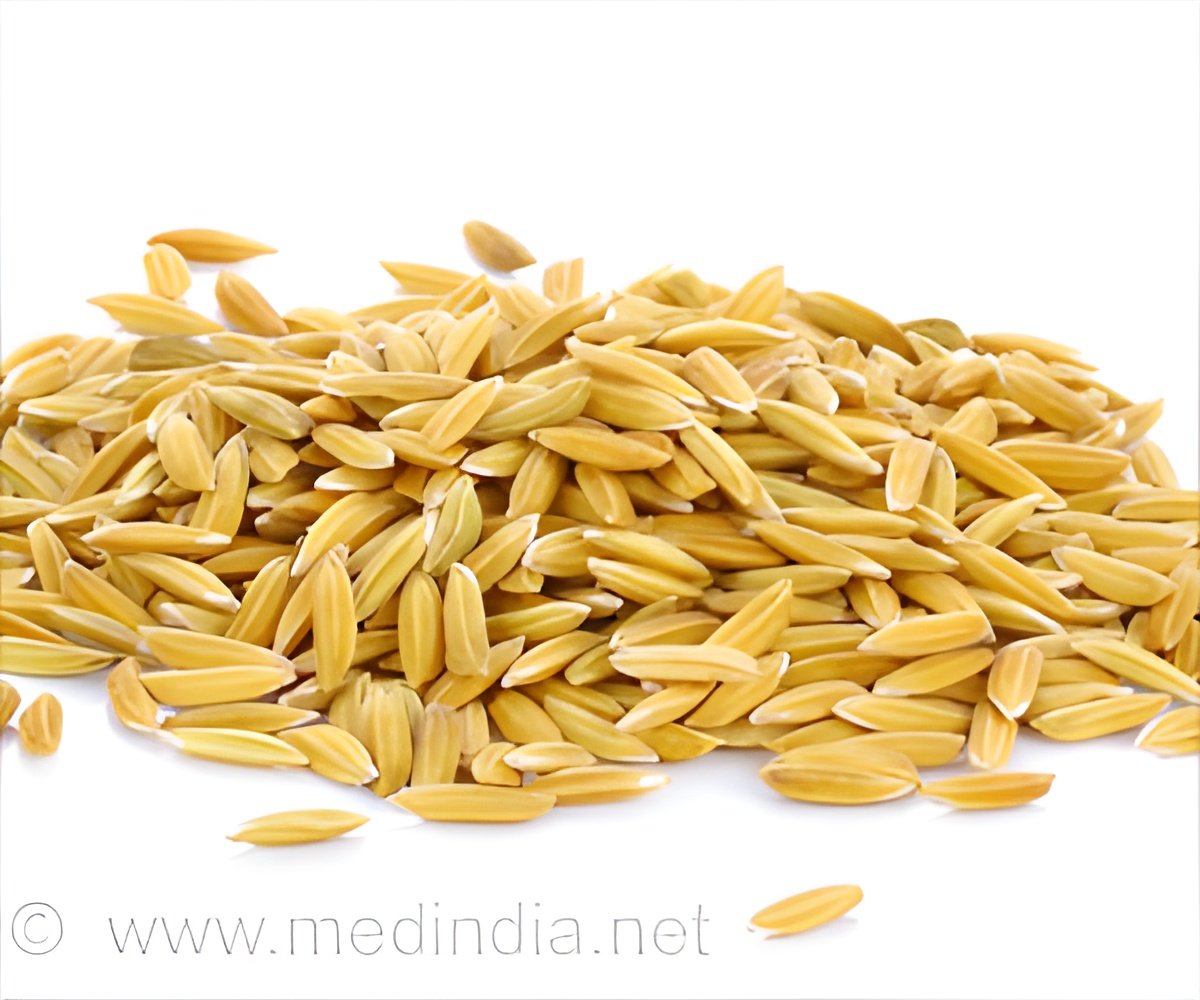A new study demonstrates the effects of rice endosperm protein on the markers correlating to lipid dysfunction in humans and the results are quite encouraging!!

- Metabolic syndrome is a dangerous condition since it increases the risk of cardiovascular problems and diabetes.
- Lifestyle changes could possibly delay or prevent the development of serious health problems associated with metabolic syndrome.
- Rice endosperm protein may have beneficial effects in patients with risk factors for metabolic syndrome.
A deviation from the traditional rice-based Japanese diet could also be a contributing factor. In fact, purified rice endosperm protein has been demonstrated to have cholesterol-lowering properties in few animal studies. The endosperm is the central part of the rice grain, which contains starch and some protein.
Study
- A clinical trial was undertaken in Japan by Michihiro Hosojima and associates in 18 male patients, aged 26 to 64 years, to study the effects of rice endosperm protein on patients with risk factors for metabolic syndrome. In fact, five of the participants already qualified as suffering from metabolic syndrome.
- The study subjects were randomly divided into two groups. Half of the participants were given the test food with rice endosperm protein, whereas the remaining half were administered control food with another protein casein in the form of sodium caseinate for a total period of four weeks. The amount of supplemental protein to the usual meal was 10 g/day, which was equal in the two groups.
- Medical examinations and blood tests were conducted and occurrence of adverse events was recorded. After 4 weeks, the study foods were switched and the intervention was continued for another 4 weeks, and several parameters were re-assessed.
- At the end of the study, effects of rice endosperm protein intake and casein intake on physical measurements and clinical parameters were compared and evaluated.
- No significant treatment effect was observed on waist circumference, systolic blood pressure, diastolic blood pressure, or blood glucose.
- No significant differences were observed in total cholesterol, low-density lipoprotein cholesterol (LDL-C) and triglycerides between treatments. High levels of low-density lipoprotein cholesterol (LDL-C) and triglycerides are considered detrimental to health.
- High-density lipoprotein cholesterol (HDL-C) or good cholesterol were found to increase significantly at 0.08 mmol/L [interquartile range (IQR) from −0.05 to 0.19 mmol/L] following intake of rice endosperm protein whereas it was found to decrease at −0.04 mmol/L [IQR from −0.13 to 0.05 mmol/L] following intake of casein. There was significant treatment effect (P = 0.047)
- Decrease in serum uric acid levels were found to be greater following rice endosperm protein intake [−24 μmol/L (IQR from −39 to −6 μmol/L)] as compared to following casein intake [0 (IQR from −6 to 13 μmol/L)]. There was significant treatment effect (P = 0.030). High uric acid levels have been associated with gout, hypertension, kidney disease, heart disease and metabolic syndrome.
- No significant changes were observed for liver and urinary parameters for both the study periods.
- The study did not consider both sexes and was conducted only in men. Inclusion of women in the study could have possibly provided more robust results.
- The number of participants was relatively small (18) and the study duration was also limited to only 4 weeks.
- Washout period (the time period between the two treatments) was only for 3 days, which is considerably small. Therefore, there is a possibility that the some effect of the first treatment may have continued during the second.
- The study revealed that intake of rice endosperm protein could increase HDL-C as well as reduce serum uric acid levels in adult male participants who had risk factors for metabolic syndrome.
- Thus, it could be concluded that supplemental rice endosperm protein intake could have a beneficial effect in prevention or deterioration of metabolic syndrome and consequently reduce the risk of cardiovascular events.
- However, further detailed study in a larger population of both men and women and for a longer period of time is warranted.
Source-Medindia












